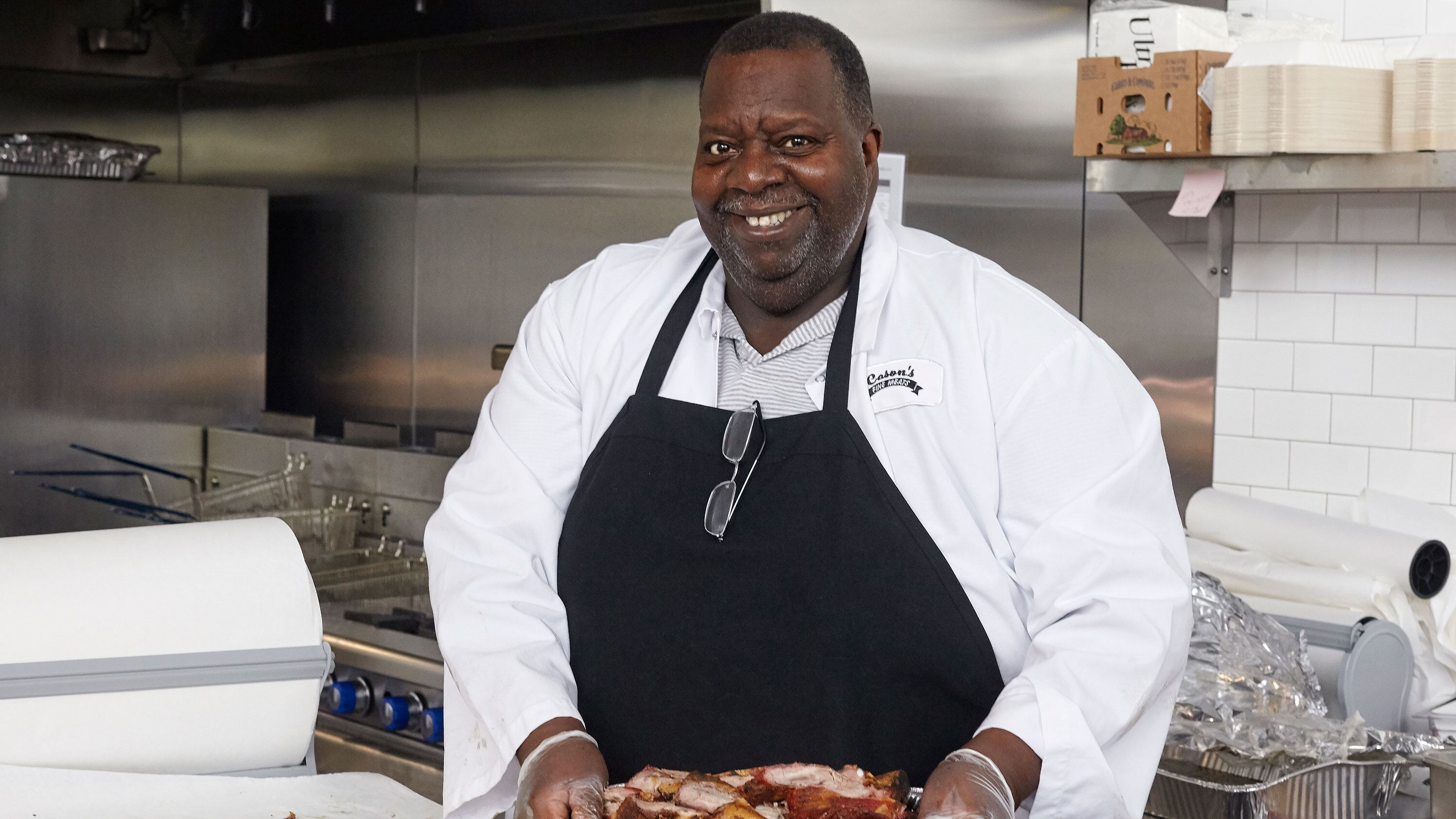In Portland, Northeast Martin Luther King Jr. Boulevard hasn't always reflected the dream of its namesake.
Though it was once the epicenter of African American life in this city, in recent years, swaths of black businesses have been swapped out for high-rise apartment buildings and trendy, white-owned businesses.
That's why the July 20 groundbreaking of Dream Street—a collection of black-owned local businesses within the Alberta Commons shopping center on the corner of Northeast Alberta Street and MLK Boulevard—was so meaningful, especially to some of the neighborhood's eldest residents.
"This was our part of the city. It was what we had," says Theotis "Uncle Theo" Cason, owner of Cason's Fine Meats. "I've watched the history here change. All the black restaurants and businesses—you name it, and it was here."
Cason's butchery has been a staple of black Portland for years. After losing his spot up on Denver Avenue in Kenton two years ago, the market has been revived as a part of the Dream Street district, along with two other shops, Champions Barbershop and Greenhaus Gallery and Boutique.
Not too long ago, this intersection was at the center of a fight between developers and longtime residents. A plan to place a Trader Joe's on the property was met with backlash, and last year, a Natural Grocers went up instead. But bringing back the type of ownership that kept the community thriving for so many years is a dream come true for those who have been able to remain there.
"It makes me proud to see that we're moving in the right direction again," says Cason, "where blacks can be right here in the neighborhood where we grew up at."
Appreciation, promise and hope could be felt in the air at Dream Street's grand opening celebration. Local vendors, nonprofits and city officials, including Jamal Fox, deputy chief of staff for Mayor Ted Wheeler, mixed with the public. Various booths and tables created a maze in the shopping center's shared parking lot—one of which sold shirts and stickers that read "Gentrification Is Weird" and "I Survived the Portland Police." Almost everyone there knew each other in one way or another.
It didn't take being a lifelong Portland resident to see the significance this shopping center holds for this community. For Chicago native Cole Reed, owner of Greenhaus, the need for bringing strength and connection back to the city's black communities was obvious.
"I'm not born and raised here, so for me, it's a social conundrum," says Reed. "We don't talk to each other, and if we do, there's a cultural bias. When you have a place that's 75 percent white…and 6 to 8 percent are black people, it's socialized differently. We need to expand what that looks like."
Part of that expansion comes with proper representation. These historically black neighborhoods were built on the backs of African Americans and their culture, yet gentrification has worked to wash much of that past away. To Reed, Cason and many others within the community, that erasure has only created a divide, while also painting an inaccurate picture of the black stories within these streets.
"Portland is 90 percent independently owned businesses," Reed says, "and a lot of those businesses are still black but never get a chance to be seen."
For Jamaal Lane, owner of Champions Barbershop, it's the new space in a busy area with high demand that brings hope to his future. But for Cason, it all runs as deep as his family's roots in town.
"I'm a piece of the dirt history here," he says. "I remember when the freeway and the Fremont Bridge came in. I'm a native son."
He wants to keep his family's name going, even if it's not in the meat business. He gives himself five years to decide whether he wants to keep at it or not, but what he really hopes for is a light at the end of the tunnel for his grandchildren.
"Nothing's going to stay the same, but I'd like to see my grandbabies have ownership in businesses," Cason says. "We just have to have an opportunity and a fair chance. Back in the '50s and '60s we had nothing but black businesses. They've fallen off. But we can do this."
GO: Alberta Commons is at Northeast Martin Luther King Jr. Blvd. and Alberta Street, alberta-commons.com.
